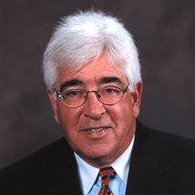Avoiding the Stress of Staff Turnover
Mayer A. Levitt
Journal of the Massachusetts Dental Society - Spring 1997
A successful dental practice depends on a talented and productive staff. To retain that staff, a dentist must provide a supportive work environment.
More than any other variable in a dental practice, a talented and supported staff is a key to a dentist's success. Dentistry is difficult and demanding, and a dentist who tries to shoulder the burden of managing the office without the proper assistance, soon becomes frustrated and discouraged.
Creating and molding a compatible staff is not an overnight process. Potentially, it could take a few years to find the right blend of talent and personalities. So it stands to reason that after working hard to assemble a team, the last thing you want is staff to leave. The purpose of this article is to describe my philosophy of how to maintain, manage, and retain a great staff.
Treat staff with respect. They are your emissaries.. They don't work for you, they work with you. Never criticize or reprimand a staff member in front of a patient or another staff person.
Compliment staff members routinely. Look for ways to say something positive about their performance. They have a tough job and need to be commended. It takes no effort at all to thank someone or praise them, and it certainly creates good will.
Pay staff well. Although salary is third or fourth on the list of employees' requirements for job satisfaction, everyone likes to feel recognized by a good pay check.. With the constant pressure of rising overhead, and the need to examine and justify every expense, do not be penny wise and pound foolish.
Delegate to the extreme. Let your staff know how much you depend on them. A job becomes much more interesting when you assign large amounts of responsibility. Time and again, I have seen people grow in their jobs because I have expressed my confidence in their ability to handle complex situations.
Try to create a schedule that eliminates stress. Working Monday, Tuesday, Thursday and Friday reduces stress and gives everyone relief from the hectic routine of busy, consecutive days. Working four days a week with a day off midweek -- no matter how long those days have to be to generate your production goals -- is less stressful on your staff than working five days in a row, with only the weekend off. It is also a great plus and appreciated by the staff to have a non workday in the middle of the week.
Whenever possible give staff extra time off in addition to scheduled vacations. As long as the office is covered by a dental assistant for emergencies and front-desk personnel for appointment control, it is of little consequence to reward staff with time out of the office if you are away on vacation or attending a continuing education course.
Pay staff members a yearly salary. I have never believed in employees punching a time clock. Because I am very conscious of the value of their time, we rarely work into the lunch hour and almost never work late. If we finish ahead of schedule, I let the majority of my staff leave early. With this approach, on the rare occasion that I must work late, overtime never becomes an issue.
My staff knows they are functioning as a team. Because of this, I don't advocate specifying a certain number of sick or personal days as a staff benefit. I expect everyone to show up every day.
Expect people to work at 85 percent to 90 percent efficiency, day in and day out. If you expect 100 percent effort all the time, your staff may get burned out and leave because of stress. At crunch time when I need 110 percent effort, I know I can get it and don't feel guilty asking for it.
Be professional with your employees. Listen to their problems. Talk about their children and families. Banter with them -- trade jokes and stories. However, don't feel the need to socialize with them after hours.
Think twice about having your spouse work in the office. This can make staff feel supervised and spied on. I also think it stifles creativity. And what happens when there are two dentists in the practice? Should both spouses have the opportunity to work in the office? A sure prescription for chaos! There are exceptions to every rule, and you must evaluate the pros and cons of your own circumstances.
These principles have worked well for me during the past 29 years. Many staff personnel have worked 10, 15 or 20 years for me and continue to do a fabulous job. There is no substitute for continuity. Patients are comforted by seeing familiar faces.
Think of your staff as family. Be caring and understanding. A soft, low-key approach to staff management will help create a solid, loyal, and dedicated group of wonderful people who have the potential to make every day in your office easier.

